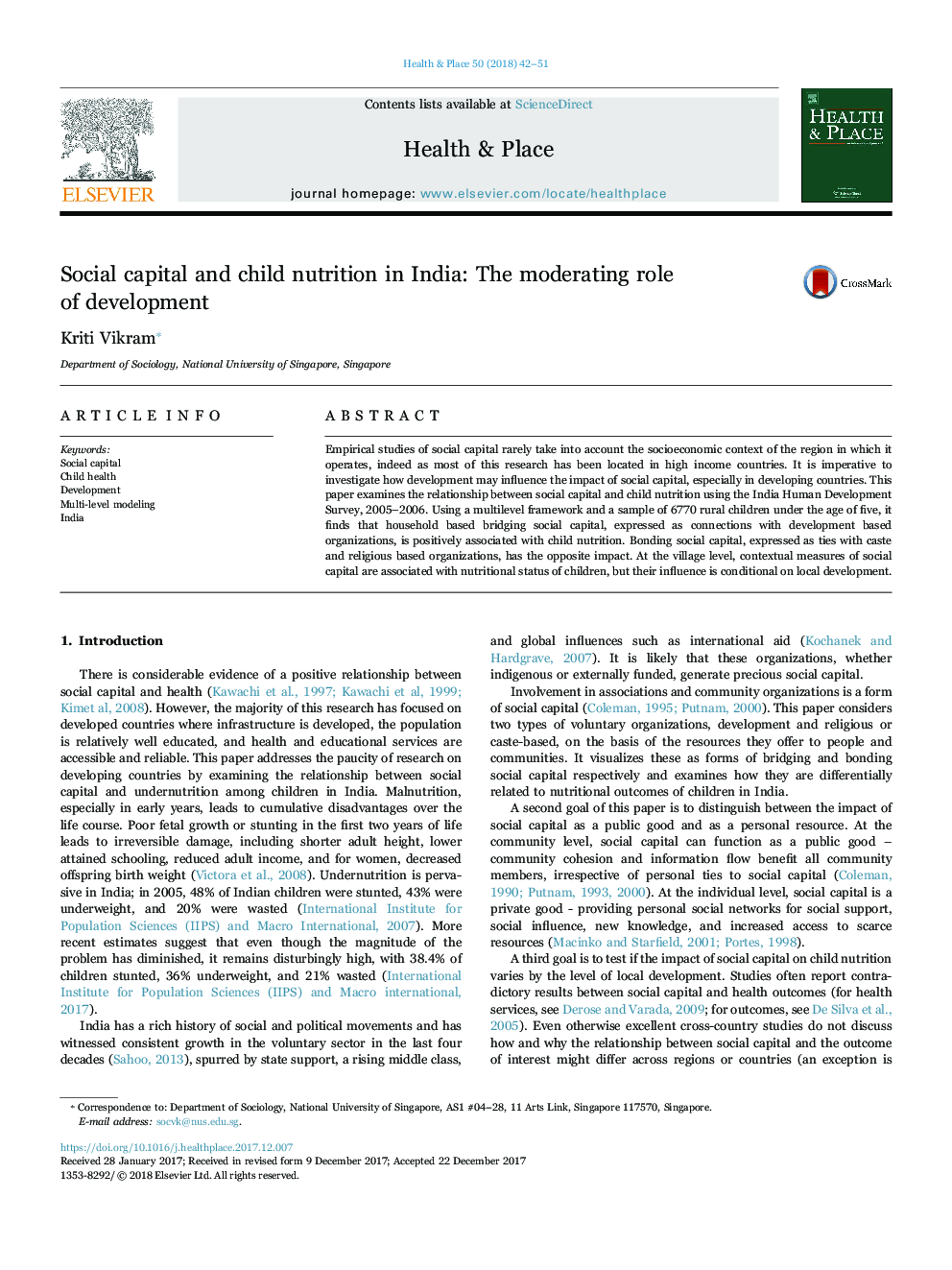| Article ID | Journal | Published Year | Pages | File Type |
|---|---|---|---|---|
| 7456976 | Health & Place | 2018 | 10 Pages |
Abstract
Empirical studies of social capital rarely take into account the socioeconomic context of the region in which it operates, indeed as most of this research has been located in high income countries. It is imperative to investigate how development may influence the impact of social capital, especially in developing countries. This paper examines the relationship between social capital and child nutrition using the India Human Development Survey, 2005-2006. Using a multilevel framework and a sample of 6770 rural children under the age of five, it finds that household based bridging social capital, expressed as connections with development based organizations, is positively associated with child nutrition. Bonding social capital, expressed as ties with caste and religious based organizations, has the opposite impact. At the village level, contextual measures of social capital are associated with nutritional status of children, but their influence is conditional on local development.
Related Topics
Health Sciences
Medicine and Dentistry
Public Health and Health Policy
Authors
Kriti Vikram,
